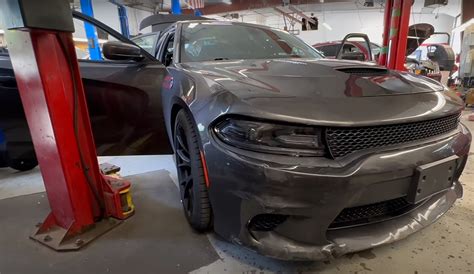
Classic car values are showing signs of cooling after a period of soaring prices, prompting speculation among enthusiasts and investors about a potential buying opportunity.
Classic Car Market Cools: Is It Time to Buy?
After years of unprecedented growth, the classic car market is experiencing a slowdown, presenting a potential opportunity for buyers who have been priced out in recent years. While certain segments remain robust, overall price appreciation has softened, leading industry experts to suggest a possible shift in market dynamics.
“Classic cars were hot; now, they’re not—or, at least, not as hot,” Yahoo Finance reported, reflecting a growing consensus that the relentless price surge seen during the pandemic era is moderating. This cooling trend comes after a period where classic car values outpaced many traditional investment assets, driven by factors such as increased disposable income, a passion for nostalgia, and the appeal of tangible assets in an uncertain economic climate.
According to Hagerty, a leading provider of insurance and valuation data for classic cars, the market is “definitely softening.” This assessment is based on observed trends in auction results, private sales, and overall market sentiment. While blue-chip classics – rare and highly desirable models – continue to command premium prices, the broader market is showing signs of price stabilization and, in some cases, even declines.
One of the key indicators of this shift is the performance of collector car auctions. During the peak of the market, auction houses reported record sales and soaring prices, fueled by intense bidding wars and a sense of urgency among buyers. However, recent auctions have seen lower sell-through rates and more moderate bidding activity, suggesting a decrease in demand and a greater reluctance among buyers to overpay.
“The market softening has several contributing factors,” said an automotive analyst at a leading investment firm. “Rising interest rates, inflation, and concerns about a potential recession are all weighing on consumer sentiment and impacting discretionary spending. Additionally, the supply of classic cars has increased as some collectors look to capitalize on the high prices achieved in recent years.”
Factors Driving the Market Shift
Several macroeconomic and microeconomic factors are contributing to the current cooling of the classic car market. Understanding these factors is crucial for both buyers and sellers looking to navigate the changing landscape.
-
Economic Uncertainty: The global economy is facing a number of challenges, including high inflation, rising interest rates, and geopolitical instability. These factors are creating uncertainty and impacting consumer confidence, leading to a decrease in discretionary spending on luxury items such as classic cars.
-
Rising Interest Rates: Central banks around the world have been raising interest rates to combat inflation. This makes borrowing more expensive, which can discourage buyers from taking out loans to purchase classic cars. It also increases the opportunity cost of holding classic cars as an investment, as investors can earn higher returns on fixed-income assets.
-
Increased Supply: The high prices achieved in recent years have encouraged some collectors to sell their cars, increasing the supply of classic cars on the market. This increased supply can put downward pressure on prices.
-
Shifting Demographics: The demographics of classic car collectors are also changing. As older collectors age, they may be looking to downsize their collections or pass them on to younger generations. Younger collectors may have different tastes and preferences than older collectors, which can impact demand for certain types of classic cars.
-
Market Correction: After years of rapid growth, the classic car market may simply be undergoing a natural correction. Asset bubbles are common in many markets, and the classic car market may have been experiencing a bubble that is now deflating.
Opportunities for Buyers
Despite the challenges facing the classic car market, the current slowdown presents some potential opportunities for buyers. With prices moderating and inventory increasing, buyers may be able to find better deals on the cars they have been dreaming of.
-
Greater Negotiation Power: As demand cools, buyers may have more leverage to negotiate prices with sellers. Sellers may be more willing to accept lower offers in order to move their cars.
-
Wider Selection: With more cars available on the market, buyers have a wider selection to choose from. This allows them to be more selective and find cars that meet their specific needs and preferences.
-
Reduced Competition: During the peak of the market, buyers faced intense competition from other bidders at auctions and private sales. With demand cooling, there is less competition, which can make it easier to acquire desired cars.
-
Potential for Long-Term Appreciation: While the market may be slowing down in the short term, classic cars have historically been a good long-term investment. By buying during a period of weakness, buyers may be able to position themselves for future appreciation.
Navigating the Market
For those considering buying or selling classic cars in the current market, it is important to do your research and understand the factors that are influencing prices. Here are some tips for navigating the market:
-
Do Your Research: Before buying or selling a classic car, it is important to research the market and understand the factors that are influencing prices. Look at auction results, sales data, and expert opinions to get a sense of the current market conditions.
-
Know Your Budget: Determine how much you are willing to spend on a classic car and stick to your budget. It is easy to get caught up in the excitement of an auction or private sale, but it is important to remain disciplined and avoid overpaying.
-
Inspect the Car Carefully: Before buying a classic car, it is important to inspect it carefully for any mechanical or cosmetic issues. If possible, have a qualified mechanic inspect the car as well.
-
Be Patient: The classic car market can be volatile, so it is important to be patient and not rush into any decisions. If you are a buyer, wait for the right opportunity to come along. If you are a seller, be prepared to wait for the right buyer to emerge.
-
Consult with Experts: Consider consulting with experts in the classic car market, such as appraisers, dealers, and collectors. They can provide valuable insights and guidance.
Impact on Different Segments
The cooling of the classic car market is not uniform across all segments. Certain types of cars are holding their value better than others, while some are experiencing more significant declines.
-
Blue-Chip Classics: Rare and highly desirable models from marques like Ferrari, Porsche, and Mercedes-Benz continue to command premium prices. These cars are often seen as investments-grade assets and are less susceptible to market fluctuations.
-
Muscle Cars: Muscle cars from the 1960s and 1970s have also held their value relatively well. These cars are popular among collectors and enthusiasts, and their limited supply helps to support prices.
-
Entry-Level Classics: More affordable and readily available classics, such as vintage Volkswagen Beetles and early Ford Mustangs, have experienced some of the biggest price declines. These cars are often purchased by first-time collectors, who may be more sensitive to economic conditions.
-
Project Cars: Cars that require significant restoration work have also seen their values decline. As labor and parts costs have increased, the economics of restoring these cars have become less attractive.
Expert Opinions
Industry experts have offered a range of opinions on the current state of the classic car market. Some believe that the slowdown is a temporary correction, while others predict a more prolonged period of weakness.
“We’re seeing a return to normalcy after an unprecedented period of growth,” said McKeel Hagerty, CEO of Hagerty. “The market is still healthy, but buyers are becoming more discerning and sellers are more willing to negotiate.”
“The era of easy money is over,” said Dietrich Hatlapa, founder of the Historic Automobile Group International (HAGI). “Investors are becoming more cautious and are focusing on quality over quantity.”
“This is a good time for buyers who have been waiting on the sidelines,” said Alain Squindo, a classic car specialist at RM Sotheby’s. “There are some great deals to be had, but it’s important to do your research and buy wisely.”
The Future of the Market
The future of the classic car market is uncertain, but several factors will likely play a role in shaping its trajectory.
-
Economic Conditions: The overall health of the global economy will have a significant impact on the classic car market. If the economy continues to struggle, prices could decline further. If the economy recovers, prices could stabilize or even rebound.
-
Interest Rates: Interest rates will also play a key role. If interest rates remain high, borrowing costs will remain elevated, which could continue to dampen demand for classic cars.
-
Changing Demographics: The changing demographics of classic car collectors will also influence the market. As younger collectors enter the market, their tastes and preferences will shape demand for different types of cars.
-
Technological Advancements: Technological advancements, such as electric vehicles and autonomous driving, could also impact the classic car market. Some collectors may see classic cars as an antidote to the increasing digitization of the automotive world.
Conclusion
The classic car market is currently undergoing a period of transition. After years of rapid growth, prices are moderating, and the market is becoming more balanced. While this may be a challenging time for sellers, it presents potential opportunities for buyers who have been priced out in recent years. By doing their research, knowing their budget, and being patient, buyers may be able to find great deals on the classic cars they have always wanted. As the market evolves, staying informed and seeking expert advice will be crucial for both buyers and sellers looking to navigate the changing landscape. The “Classic cars were hot; now, they’re not—or, at least, not as hot” quote encapsulates the current sentiment, highlighting the shift from a seller’s market to one where buyers have more options and negotiating power.
Frequently Asked Questions (FAQs)
-
Is the classic car market crashing?
No, the classic car market is not crashing, but it is experiencing a correction after a period of significant growth. While some segments are seeing price declines, blue-chip classics are generally holding their value. Experts like those at Hagerty have noted a “softening” rather than a collapse. The market is normalizing after an unsustainable surge.
-
What factors are contributing to the slowdown in the classic car market?
Several factors are contributing to the slowdown, including economic uncertainty, rising interest rates, increased supply, shifting demographics, and a natural market correction. High inflation and concerns about a potential recession are also weighing on consumer sentiment, reducing discretionary spending.
-
Is now a good time to buy a classic car?
It could be a good time to buy, especially if you’ve been priced out of the market in recent years. With prices moderating and inventory increasing, buyers may have more negotiation power and a wider selection of cars to choose from. However, it’s crucial to do thorough research and avoid overpaying.
-
Which types of classic cars are holding their value best?
Rare and highly desirable models from marques like Ferrari, Porsche, and Mercedes-Benz (blue-chip classics) are generally holding their value best. Muscle cars from the 1960s and 1970s are also proving relatively resilient due to their popularity and limited supply.
-
What should I do if I’m looking to sell my classic car?
If you’re looking to sell, it’s important to be realistic about pricing and prepared to negotiate. Do your research to understand current market values and consider consulting with experts such as appraisers or dealers. Be patient and wait for the right buyer to emerge, as the market may take longer to find suitable offers than it did during the peak.
-
How do rising interest rates affect the Classic Car Market? Rising interest rates increase the cost of borrowing, making it more expensive for potential buyers to finance a classic car purchase. This can lead to decreased demand, especially for those who rely on loans to acquire these vehicles. Additionally, higher interest rates can make alternative investments more attractive, diverting funds away from the classic car market.
-
What is the significance of Auction Results in determining the state of the Classic Car Market? Auction results are a key indicator of market health, reflecting real-time demand and pricing trends. High sell-through rates and escalating bids suggest a strong market, while lower rates and moderate bidding indicate a slowdown. These results provide valuable data for buyers and sellers to gauge the current market sentiment and adjust their strategies accordingly.
-
How do changing demographics influence the demand for different types of Classic Cars? As younger collectors enter the market, their preferences and tastes may differ from those of older collectors. This can shift demand towards different types of classic cars, such as those with modern technology or those that appeal to a new generation’s aesthetic. Understanding these changing demographics is crucial for predicting future market trends.
-
What role does the overall economy play in the Classic Car Market? The overall health of the economy significantly impacts the classic car market. During economic downturns, discretionary spending decreases, leading to reduced demand for luxury items like classic cars. Conversely, a strong economy can boost consumer confidence and increase investment in collectibles. Economic indicators like GDP growth, inflation rates, and employment figures are important factors to consider.
-
What are some strategies for mitigating risk when investing in Classic Cars during market fluctuations? To mitigate risk, diversify your portfolio by investing in a range of classic cars, rather than focusing solely on a single type or brand. Conduct thorough research on each vehicle’s history and condition, and consult with experts to assess its true value. Stay informed about market trends and be prepared to adjust your investment strategy as needed. Long-term holding can also help weather short-term market volatility.
-
What is the Historic Automobile Group International (HAGI) and what role does it play in understanding the classic car market? The Historic Automobile Group International (HAGI) is a research organization that tracks and analyzes the performance of the collectible car market. It provides indices and data that help investors and enthusiasts understand market trends, assess risk, and make informed decisions. HAGI’s research is widely respected in the industry and serves as a valuable resource for those looking to navigate the classic car market.
-
How do “Project Cars” perform in a softening market, and what are the considerations for investing in them? “Project Cars,” which require significant restoration, tend to perform poorly in a softening market. The increasing costs of labor and parts make restoration projects less economically attractive. Investors should carefully evaluate the potential restoration costs and ensure that the finished value justifies the investment. These cars typically carry higher risks compared to fully restored or well-maintained vehicles.
-
In what ways might technological advancements, such as electric vehicles, affect the Classic Car Market? Technological advancements, particularly the rise of electric vehicles and autonomous driving, could have a mixed impact on the classic car market. On one hand, some collectors may view classic cars as a nostalgic escape from the increasing digitization of the automotive world, potentially increasing their appeal. On the other hand, the focus on modern technology and environmental concerns could shift interest away from older, less efficient vehicles.
-
Can you elaborate on the trend of increased supply in the Classic Car Market and its implications? The increased supply of classic cars, driven by collectors looking to capitalize on recent high prices, puts downward pressure on prices. A larger inventory can lead to more competitive pricing and longer sales cycles. This trend creates opportunities for buyers who are patient and willing to negotiate, but it also requires sellers to be more realistic about their asking prices.
-
What are the key regions or countries currently driving demand in the Classic Car Market? Historically, North America and Europe have been the primary drivers of demand in the classic car market. However, emerging markets in Asia, particularly China, are increasingly contributing to demand, especially for luxury and rare models. Understanding these regional trends can help identify growth opportunities and inform investment decisions.
-
What are some common mistakes that potential buyers make when entering the Classic Car Market, and how can they be avoided? Common mistakes include failing to conduct thorough research, overpaying for vehicles, neglecting pre-purchase inspections, and underestimating restoration costs. To avoid these pitfalls, potential buyers should consult with experts, set a realistic budget, carefully inspect vehicles, and be patient in their search for the right classic car.
-
How do classic car insurance rates affect the overall cost of ownership and investment returns? Classic car insurance rates can significantly affect the overall cost of ownership. Higher insurance premiums reduce the potential investment returns, especially for vehicles that are rarely driven. Factors influencing insurance rates include the car’s value, age, condition, and the owner’s driving record. Shopping around for the best insurance rates and considering limited mileage policies can help minimize these costs.
-
What role do Concours d’Elegance events play in influencing the values and prestige of Classic Cars? Concours d’Elegance events, such as Pebble Beach and Villa d’Este, are prestigious gatherings that showcase the finest and most historically significant classic cars. Winning or even participating in these events can significantly enhance a car’s value and prestige. These events set the standard for restoration quality and historical accuracy, influencing collectors’ perceptions and driving demand for top-tier vehicles.
-
How does the growing popularity of online auction platforms impact the Classic Car Market? Online auction platforms have democratized access to the classic car market, allowing buyers and sellers from around the world to participate. These platforms increase transparency by providing detailed vehicle information and auction results. However, they also introduce risks such as fraud and inaccurate vehicle descriptions. Buyers should exercise caution and thoroughly research vehicles before bidding online.
-
What steps can owners take to ensure their Classic Cars maintain or increase in value over time? To maintain or increase a classic car’s value, owners should prioritize regular maintenance and proper storage. Keeping the vehicle in original condition or restoring it to its factory specifications is crucial. Documenting all repairs and maintenance activities can also enhance the car’s provenance. Participating in car shows and maintaining a strong ownership history can further increase its value.
-
How has the COVID-19 pandemic affected the Classic Car Market in the long term? The COVID-19 pandemic initially led to a surge in classic car prices as people sought tangible assets and recreational outlets during lockdowns. However, the subsequent economic uncertainty and rising interest rates have cooled the market. The long-term effects include increased online transactions, a greater emphasis on digital marketing, and a shift in buyer preferences towards certain types of vehicles.
-
What impact does the availability of spare parts have on the value and desirability of specific Classic Car models? The availability of spare parts is a critical factor influencing the value and desirability of classic car models. Cars with readily available spare parts are easier and less expensive to maintain and restore, making them more attractive to collectors. Conversely, models with scarce or expensive parts may be less desirable and potentially depreciate in value.
-
How does the provenance or history of a Classic Car affect its value and desirability? A well-documented provenance or history can significantly enhance a classic car’s value. This includes information about its original owner, significant events it participated in (such as races or rallies), and any notable modifications or restorations. Cars with documented celebrity ownership or a racing pedigree often command premium prices.
-
What are some of the ethical considerations involved in buying and selling Classic Cars, particularly regarding authenticity and restoration? Ethical considerations include accurately representing a car’s authenticity and restoration history, avoiding misrepresentation of modifications, and disclosing any known defects. Transparency and honesty are essential to building trust and maintaining the integrity of the classic car market. Falsifying a car’s history or concealing significant issues can have legal and reputational consequences.
-
How does the environmental impact of owning and operating Classic Cars influence the market, and what solutions are available to mitigate these effects? The environmental impact of owning classic cars, including emissions and fuel consumption, is increasingly influencing the market. Some owners are exploring solutions such as converting to electric power or using synthetic fuels to mitigate these effects. The development of more environmentally friendly alternatives could help preserve the classic car hobby for future generations while addressing environmental concerns.
-
What role do classic car clubs and associations play in supporting the Classic Car Market and preserving automotive heritage? Classic car clubs and associations play a vital role in supporting the classic car market by organizing events, providing technical expertise, and promoting automotive heritage. These organizations foster a sense of community among enthusiasts and help preserve the history and culture of classic cars. They also serve as valuable resources for buyers, sellers, and restorers.
-
How do currency exchange rates and international trade policies affect the import and export of Classic Cars? Currency exchange rates and international trade policies can significantly impact the import and export of classic cars. Fluctuations in exchange rates can make cars more or less expensive for international buyers, while trade policies such as tariffs and import restrictions can affect the cost and feasibility of cross-border transactions. Understanding these factors is crucial for navigating the global classic car market.
-
What are some strategies for financing the purchase of a Classic Car, and what are the potential risks and rewards? Strategies for financing a classic car purchase include using personal savings, obtaining a loan from a bank or credit union, or utilizing a specialty lender that focuses on classic cars. Potential risks include high interest rates, depreciation of the vehicle’s value, and the possibility of defaulting on the loan. Potential rewards include owning a valuable asset that appreciates over time and enjoying the passion and community associated with classic cars.
-
How do the changing regulations regarding vehicle safety and emissions standards impact the ownership and use of Classic Cars? Changing regulations regarding vehicle safety and emissions standards can pose challenges for classic car owners. Many classic cars do not meet modern safety and emissions requirements, which can restrict their use in certain areas. Some jurisdictions offer exemptions or special provisions for classic cars, while others impose stricter regulations. Staying informed about these regulations is essential for ensuring compliance and avoiding penalties.









